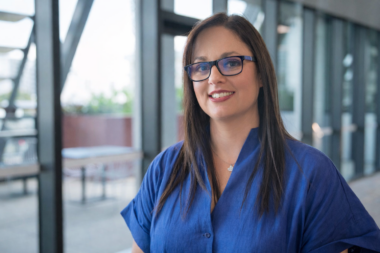Available for Comment
Mr Night is in Brisbane this week for In-Studio locations and is able to travel. Mr Night enjoys live TV, talk show and debate style discussions and panels also given his breadth of experience on air.
National Disability Sector Advocate
MR RIVER NIGHT
Stop Oversimplifying
Special Education and our Schools and Get it Right, say Disability Advocates Following the Royal Commission Report Release
National Disability Sector Advocate Mr River Night, is available for comment on the release of the findings of the Royal Commission into Violence, Abuse, Neglect and Exploitation of people with a Disability on a variety of the recommendation topics.
River has an office-based Studio setting with broadcast quality audio & vision. Mr Night is a National Disability Sector Advocate and outspoken supporter for reform and improvements in the Disability, Education, Youth Justice, Forensic Disability, Guardianship, Mental Health, Child Safety and NDIS sectors.
"As someone who started their career in special education, regional behaviour and autism spectrum advisory programs for teachers and schools I was very excited to see mention of education in the Royal Commission and report recommendations", said Mr Night this week.
"Sadly we see the same generalised and misinformed discussion that risks politicising the topic and causing major rifts within our education spaces and the same 'choose one of two options' comments. Who then becomes the ones in the middle and who has to wear this; our children, teachers and schools that are already full of underpaid professionals, under-skilled and time poor staff. They cant deliver diverse programs now with the current classroom numbers and an agency that pushes for miracle working in the classroom. Things cant change until we address current issues.
"The discussion is not 'should we abolish special schools or not'. Yes of course we can in most situations. The issue is having a special school operating separately on the grounds of a mainstream school is still segregation and marginalisation.
"Those that are commenting on this need to have an understanding of student needs and the reality of how Australian's treat and respond to people with disability. Schools are a reflection of our community. Schools creates our community and it shapes our community and the culture in Australia. Let us stop being so utterly ridiculous in our approach to policy and public discussion by oversimplifying human issues.
"When I worked advising teaching staff in schools on how to support children with disabilities in mainstream classrooms it was always the same response. Teachers would get angry and stressed saying they cant provide individualised programs to 25-35 students in the room every day. I appreciated that because when I started teaching my first grade 1 class had 34 children in it, with an occasional teacher aide helping me, who was often redeployed to other classes randomly, despite class numbers supposedly being less than that according to benchmarks.
"When teaching I would often 'inherit' 5-6 additional students on top of my class number from other classes most days, which other teachers would label as 'feral kids' they couldn't 'control'. All children can be taught if approached correctly, instead of using the 'herding sheep' pedagogy we were taught at university. The 'feral kids' as other teachers called them were the children with disabilities and mental illness that do not thrive in our industrialised era, car manufacturing approach to outputs in education. These are the children that are suspended or expelled or their families are often encouraged politely and indirectly to feel free to keep them home when NAPLAN was on so they didn't ruin the scores. If they 'couldn't be managed' as many educational professionals describe it, perhaps half days and time in the special education units to enshrine and solidify their feeling of being 'other' was the best next step. Doing this in front of the other students also helped to ensure we teach the next generation to continue implementing a culture of exclusion, marginalisation and labelling as 'other' what we know is valued diversity. The next level of exclusion can then take the form of inaction in hopes that parents give up asking for schools to use common sense and opt for home-schooling instead.
"What I found shocking was that when I worked in special schools where we had 3 children in a classroom with one full time teacher and one full time teacher aide, was that it was up to the teacher just how extreme the seclusion felt by students was. We often didn't have general playground time with other students as teachers wanted a break and 'managing the playground' with so much diversity and complex disability support needs seen grouped in a small space it was often too challenging. Teaching in special schools was extremely lonely as I rarely saw other teachers or spent time with them.
"It was a couple of years before I heard one day that a student had been suspended from the special school I was working at for 'non-compliance'. My students had extremely significant intellectual disabilities and could not often follow basic instructions, we were toileting them and feeding them lunch one on one due to them not being able to manage this task independently, they were unable to speak and we celebrated when they learnt a new sign for communication each month. Even in this setting students were still label 'non-compliant' and suspended which was ridiculous. Even in these specialised settings, behind tall metal gates and fences, locked doors, specifically designed to support the most extreme support needs, our education system was utterly failing at inclusion and excluding students like they did in mainstream settings. I never could understand how we could get away with suspending a student from a special school, the most segregated and controlled environment, resembling a high security mental health ward for being 'non-compliant'. Clearly the student was able to be supported at home with parents unable to work now due to them being suspended in a standard house, in the middle of our community, so how could we ever get away with saying we couldn't 'manage them' in a specifically designed prison like setting? Even in the most restrictive and specialist setting our education system was unable to cope.
"Saying close all Special Schools without considering the radical changes needed both culturally as well as systemically is why bureaucrats cant get it right already. I am fully supportive of wiping out our segregated special schools as fast as possible. This is going to involve a need to radically change a few key things,
- culture - education of education staff at all levels to change how they see disability and diversity both small and at extreme levels of diversity
- physical space - our old, worn out schools, regional school facilities and even private school settings that aren't physically accessible, let alone emotionally and culturally accessible, will need a huge renovation which is going to require billions of dollars invested quickly. Special schools are often in suburbs and the land would be worth a lot, so selling or redeveloping those assets could fund a lot of the renovations needed to update our mainstream schools
- coaching, advisory teams and professional supervision - teachers need ongoing supports, checks and balances to get this right
- community education - how much uproar will we have to listen to while people say - I don't want my child's education suffering because 'those kids' are being 'let into our classrooms'
- university education - how will we ensure we have teachers that know how to deliver education to a diverse group of children?
- staff burn out - if it isn't done right and well supported working smart rather than hard we wont have good teachers sticking around
- parent and community connection - I have many friends who home school because the drama and trauma their child experiences at the hands of an uneducated education system with limited capacity right now is too great
"Like the teachers I worked with to deliver education to classrooms with a range of disability and diverse support needs in mainstream settings, that would feel overwhelmed, there is good news. Many teachers soon realise that the pedagogy, approach and strategies we recommend to be used to support student's with disability are things most students enjoy and thrive with also. The whole classroom can be run with the same strategies. Implementing teaching strategies that value diversity and cater to a range of support needs can create a more positive setting and energy in education settings at times. As long as education is delivered in a way that allows those students that excel to go above and beyond as much as they like and those that need support to access it flexibly, it doesn't need to be an additional task with additional work loads. It does require greater skill and support for teachers.
"In radically changing our approach to segregated special school institutions versus mainstream settings and trying to amalgamate them, we have to recognise there are children with disability support needs that will thrive within groups and inclusive settings. There are also children that have significant disability support needs, require one to one staff support most of the day and who may also not cope well in large groups or settings where it is a survival of the fittest 'hunger games' type of approach to classrooms and playgrounds that I have to be honest and say feels like the movie "Lord of the Flies" at times when no teacher can be found on duty to support positive and safe behaviour. I saw this time and again when I worked with regional behaviour units with the Education Department. Basics such as how we value and ensure all students are participating together is the key, otherwise we risk creating separate and segregated education within the crowd or behind locked doors, just inside mainstream school grounds that helps us feel better but is tokenism at best.
"Getting rid of special schools and segregation starts by us changing the culture in Australia and how we value people living with disability in our community. It is about valuing diversity and seeing it as a strength to do so, not a burden or favour. Building separate 'special education units' working detached to the rest of the school, but at least on the same patch of ground, is not the way to go because we already have that in many schools and it is failing to create one community instead of silos. If we stop separating our community between special education and mainstream education and just call it education, deliver it in 'the' school instead of separate institutions, that could be a start when we have over 4.4 Million Australians living with disability in this country. And no we are not going to be patient waiting till 2052.
Contact details:
All media can contact Mr Night's team via
M 0401429403


